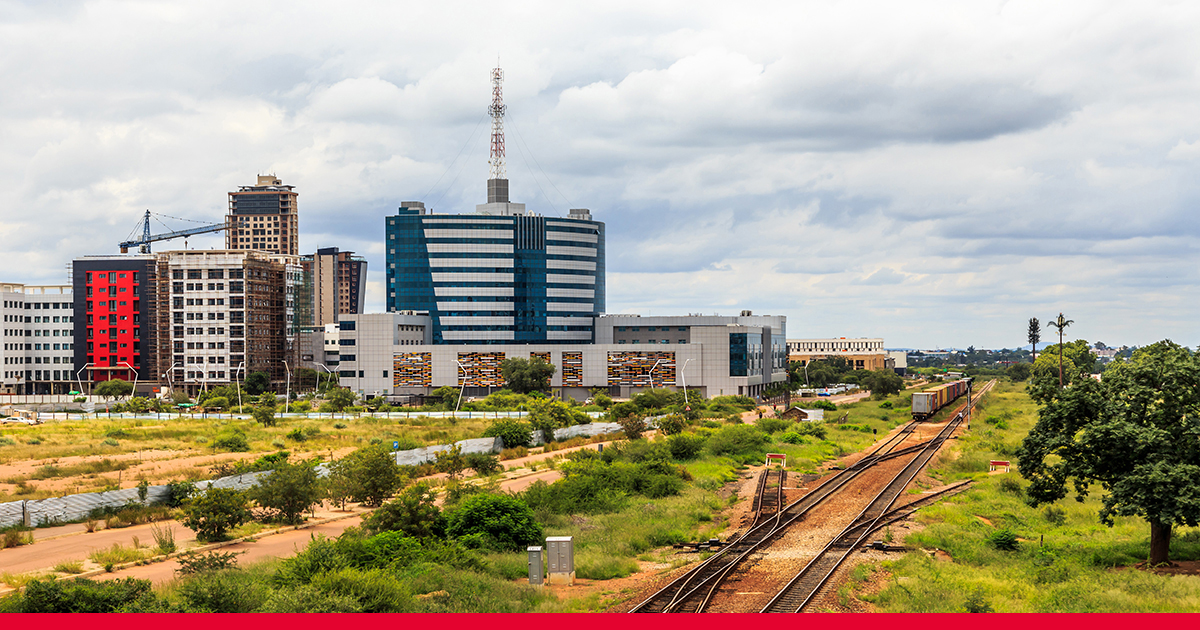The Centre for Human Rights, Faculty of Law, University of Pretoria in partnership with the University of Antwerp, Belgium, annually present an Advanced Human Rights Course (AHRC) on the Right to Development in Africa. In 2021, the course was presented from 16 to 20 August. As a result of the COVID-19 travel restrictions, this year’s course was presented online via Zoom.
This year, approximately 67 participants from 13 African countries, Italy and The Netherlands were part of the course. Participants included development experts, members of civil society organisations, human rights activists, non-governmental organisations, researchers, academics, legal practitioners and postgraduate students.
The course customarily opened with introductions and the setting of the scene by Dennis Antwi, Manager, AHRC along with Prof Frans Viljoen, the Director of the Centre for Human Rights.
Prof Koen De Feyter from the University of Antwerp and Member of the UN Expert Mechanism on the right to development, set out the foundations of the as well as the conceptual framework and introduced the Declaration on the right to development. In his session he strongly affirmed that the right to development remains largely contested as a human right, with Western economies at the forefront of the debate. Despite this, he argued that developing countries should not be discouraged but keep up with the ongoing work on realising the right to development in Africa. He urged that developing countries should actively participate in ongoing discussions and contribute to the drafting of the Convention on the Right to Development. As part of the historical background on the right to development, he introduced participants to two renowned fathers of this right: Keba M’Baye and Karel Vasak, and their ideologies on solidarity rights. Prof De Feyter further expounded on the principles of the right to development and the concept of peoples’ as the right holders and its duty bearers.
Dr Bonny Ibhawoh, a Member of the UN Expert Mechanism on Right to Development, decoded the two prominent concepts of ‘Peoples’ and the ‘Right to Self Determination’. In his presentation, Dr Ibhawoh stated that these concepts have both legal and political connotations and that ‘Peoples’ is an African concept illustrating the spirit of collectiveness over individuality. The word ‘peoples’ is mentioned 38 times in the African Charter on Human and Peoples’ Rights (African Charter). He continued that the right to development, which is enshrined under article 22 of the African Charter, flows from the right to self-determination, which is often seen as a vague Global South concept. However, he emphasised that right to development is its own right and must be treated as such.
After the welcome and general remarks by Dr Geraldine Reymenants, the Diplomatic Representative of the Government of Flanders, Prof Wouter Vandenhole from the University of Antwerp, Belgium, led the intense discussions on the right to development and a human rights-based approach to development. He stated that despite contestations, the right to development is well pronounced in the African Charter under Article 22 and Article 4 of the Draft Convention on the Right to Development. He stated that in the Endorois case, where the human rights-based approach was applied, the African Commission on Human and Peoples’ Rights concluded that the right to development is a two-pronged test. It is both constitutive and instrumental, or useful as both as means and an end. The violation of either the procedural or substantive element constitutes a violation of the right to development. Fulfilling only one of the two prongs will also not satisfy the right to development.
Prof Mihir Kanade from the University of Peace, Costa Rica and UN Expert on the Mechanism on the Right to Development led interactive discussions on the right to development and the Sustainable Development Goals (SDGs). He reiterated that the RTD is based on three things being Peoples’ are entitled to participate, contribute to and enjoy socio-economic, cultural rights and political development and that the duty of the States is to ensure fulfilment of these entitlements. This duty of the State is three pronged being-internally (at national level), externally (through international relations) and collectively (through international cooperation and mutual assistance). Equally, the right to development and the SDGs as articulated under the UN Agenda 2063 are symbiotically related. Realising one means realising the other and lack of realisation of one similarly means no gain for the other. Currently, it remains unfortunate that both have attracted a lack of political will to implement by States, which has negatively affected their realisation, both at national and international level.
Other topics discussed at this year’s course were:
- Illicit financial flows
- Environment, climate change and the right to development in Africa
- The right to development and FPIC of indigenous communities: Insights from the work of the ACHPR’s working group on Extractive Industries, Environment and Human Rights Violations
- Jurisprudential perspectives from the African Commission and the African Court
- The need for a gender-responsive sustainable development framework
- International financial institutions and the right to development.
- Human Rights Obligations of the World Bank/IMF with reference to the World Bank Inspection Panel
- Development and development assistance/aid: The obligation to provide assistance
Practical aspects of the course included:
- Recaps: where participants were given an opportunity to recapitulate on what they have learnt during the previous days and to delve into contentious issues arising from the discussions.
- Zoom groups discussions: on the African Court and the African Commission’s jurisprudence on the right to development, mainly the SERAC, OGIEK and Endorois cases.
- Class debate on a UN treaty on the right to development: the class was divided into four groups with 2 groups making arguments for and 2 groups making arguments against the proposed treaty.
- Country reports: participants were teamed up with their fellow countrymates to make a report on the effect of COVID-19 on development and to investigate forms of possible redress in their respective countries.
We gratefully acknowledge the Government of Flanders for their financial support.


